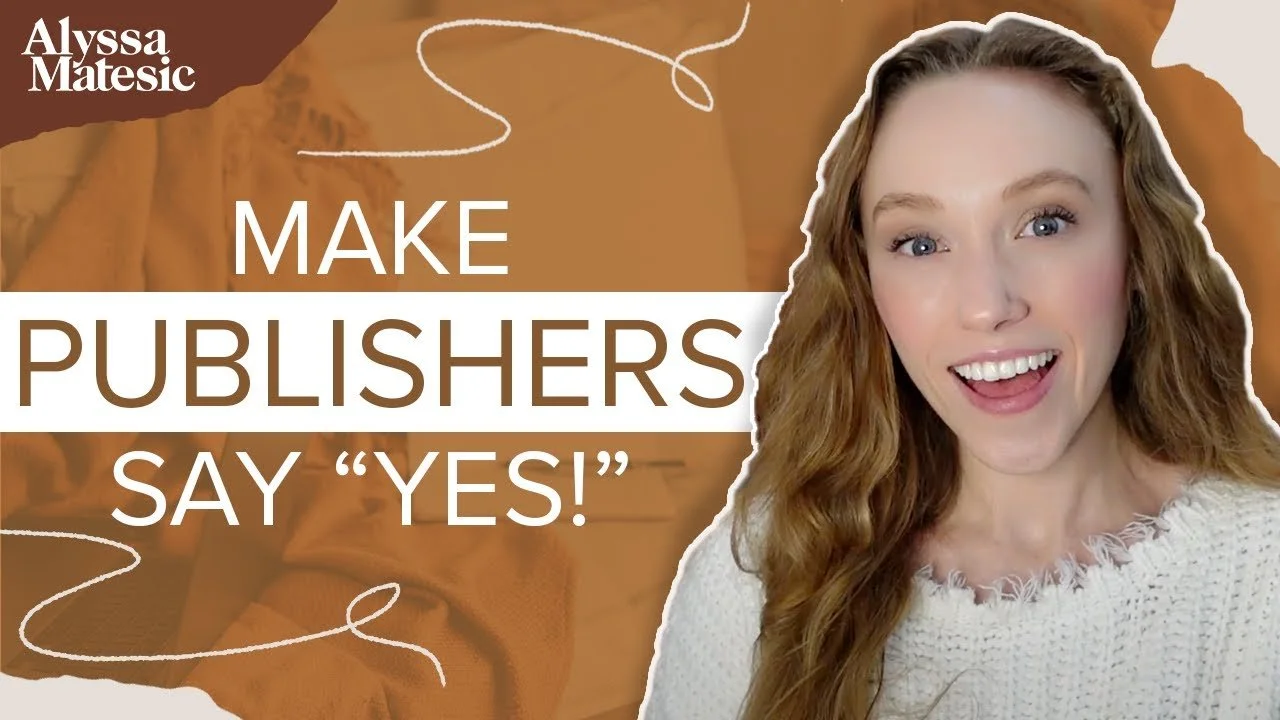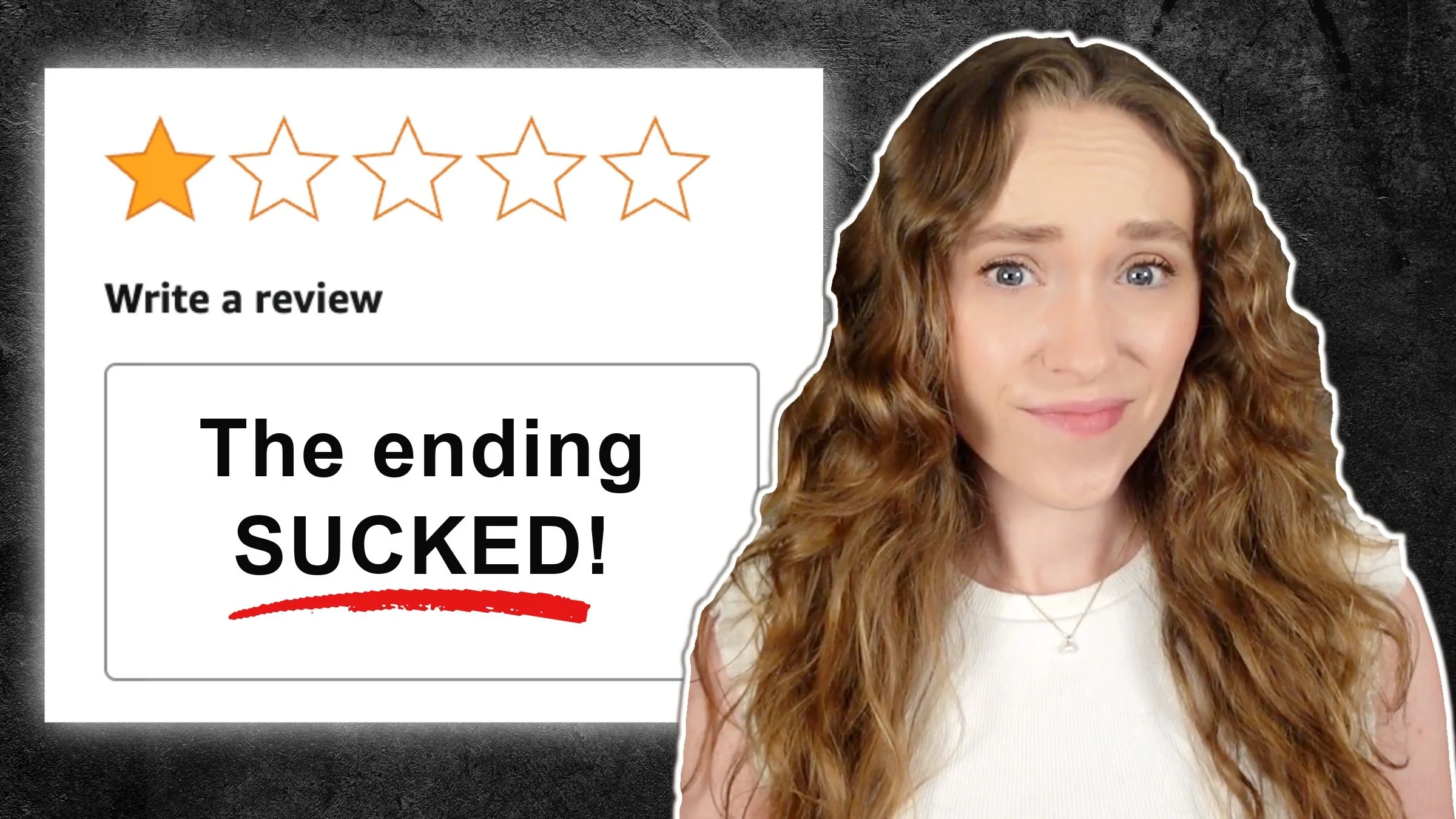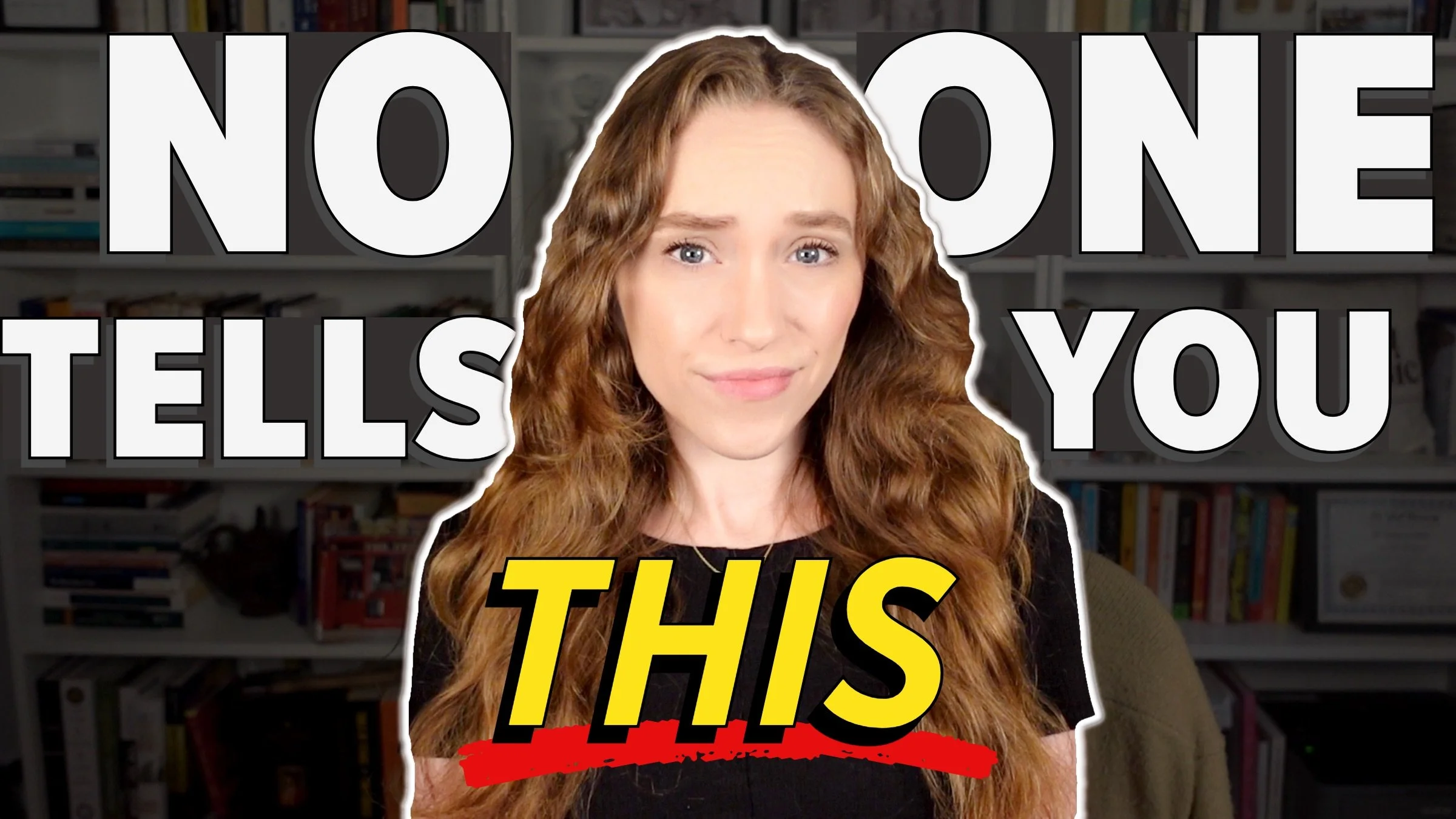How to Increase Your Chances of Getting Published
HIT PLAY OR READ THE POST BELOW:
Getting your book traditionally published takes a lot of time, energy, and effort. For most authors, you have to be incredibly patient and persevere through a lot of rejection before you get that coveted book deal from a Big Five publishing house.
If you're preparing to query literary agents, or if you have already sent out some queries but haven't gotten any bites yet, you might be wondering if there is anything you can do as an author to improve your chances of getting picked up by a literary agent or publisher. Here are my tactical tips for how to increase your chances of getting published.
Strengthen Your Manuscript
The first thing you can do to increase your chances of getting published is strengthen your manuscript. By far, the best way to improve your chances of getting traditionally published is to make your story the strongest it can possibly be. When literary agents and publishers are considering a book, either for representation or for publication, the manuscript itself is the most important deciding factor. Especially if you're writing fiction, the story itself has to hold up and be engaging and compelling for a literary agent or publisher to feel confident that this is an investment worth taking on.
So, if you have written a book but you haven't gotten any external feedback on your story, I strongly suggest doing so before you seek a literary agent or a publisher. That said, you want to make sure it is someone whose opinions and feedback you can trust — someone who has the ability to give you helpful and constructive feedback that's going to help you elevate your story on the next draft. This could be a beta reader who you find in a writing group or via a writing workshop setting, or it could be someone that you hire as a professional editor.
Some questions that you want to potentially ask this critique partner or editor would be:
Does the beginning hook the reader?
Does the reader get invested in the main characters?
Are there any areas where the pacing lags?
Does the ending strike the right sentiment?
What you are trying to do at this level is structural or developmental editing, which focuses on refining the big picture elements of the story. When you are reaching out to a literary agent or publisher, it's typically not as important to work through copy edits or proofreading (unless you have major issues with grammar or spelling that need to be corrected) because they do understand that this is still a working draft. That said, you want the draft to be as strong as possible, because that is going to increase the odds that a literary agent or publisher is interested in it, which is going to increase your chances of getting published.
Another way to strengthen your writing overall is to consume resources. There is a plethora of writing resources online if you know where to look, including:
Podcasts
YouTube videos (like mine)
Even reading other published books in general is going to help make you a stronger writer.
Research the Market
My next tip for how to increase your chances of getting published is to research the market. Agents and publishers are much more likely to respond positively to a book that has a clear fit in the current publishing landscape. After all, they want to make sure that they are able to sell copies of the book and that their investment is not a high risk.
To think about it in other terms, a chef might have a great idea for a new item on the menu at the restaurant they work at, but if the clientele of that restaurant doesn't like that particular flavor combination or isn't drawn in by that particular idea of a dish, then it's unlikely to be popular. Similarly, your book should feed a specific craving. There are cases where something totally new and unexpected takes off, but those are rare, and more often than not, your book is going to fall into a defined genre. So, take some time and try to think about the target audience for your book.
The best way to do this is to find some realistic and recent comparable titles. Think of these as the books that would sit next to your book if they were on the shelf together at a bookstore. Ideally, literary agents and publishers will see that readers of these specific books will also like to read your book.
Finding comp titles is admittedly a really challenging part of the querying process, but it is very important, so I recommend taking the time to do it. Ultimately, authors who can clearly demonstrate who they are writing for and who will be drawn to their work are typically going to be more successful.
Publish Other Works
My next tip for improving your chances of getting published is to publish other works. One way to boost your credibility and potentially attract the attention of an agent or a publisher is to publish short-form pieces in literary outlets. This could be related to your book but doesn't necessarily have to be. For instance, if you are writing a memoir about adoption, you could publish a personal essay about adoption in a relevant outlet.
If you write a splashy or viral feature piece or personal essay that is circulated widely or read widely online, that can catch a literary agent's attention, because they do keep track of the top literary outlets. For example, the New York Times’ “Modern Love” column is very highly regarded, and if an agent reads something that really resonates with them or the writing style really captivates them, they could reach out to that author and see if they have a book project in mind.
Even if you publish in one of these outlets and an agent doesn't come to you, you can still reference this piece in your bio, which may catch an agent's attention because it shows that you have some publishing credentials.
In my view, it can also be helpful to spend some time working on a short form piece or different type of story to take a break from the book that you've likely been immersed in day in and day out.
Refine Your Query Letter
My next tip for how to increase your chances of getting published is to refine your query letter. Your query letter is essentially your pitch to a literary agent. It should get them excited to read the sample pages of your manuscript and pique their interest so that they really want to dive into this story.
A strong query letter can make an agent even more excited about you as an author, but on the flip side, an unprofessional or poorly executed query letter can do the opposite and actually be a turnoff for a literary agent, even if your manuscript is really strong. Think about it in terms of a cover letter and a resumé; even if your resumé has all the right material and is a good fit, if your cover letter is super unprofessional, it's unlikely that someone is going to want to offer you a job (or, at the very least, they're going to have some questions for you as to why the cover letter fell so short).
You want to ensure that your query letter includes all the necessary information and is professionally presented. While a query letter alone will not get you a book deal (you have to have strong sample pages as well), it is an asset that can enhance your overall submission to the agent, make you more attractive, and therefore increase your chances of getting published. So, you should use it to your advantage.
Build Your Platform
My final tip for boosting your chances of getting published is to build your platform. Now, I include this point with hesitation because I know many aspiring authors stress about not having a huge online following. You may be concerned that this means you're never going to get published. The truth is — and I emphasize this — you do not need a huge online following in order to get a book deal from a traditional publisher or an offer of representation from a literary agent. However, since we are talking about increasing your odds of getting published, I do have to include it because it can add to your appeal to a literary agent or a publisher.
Remember, at the end of the day, selling books is a business, and if you have a built-in network of people who are likely going to buy your book, that's obviously going to make for a more attractive investment from the perspective of a literary agent or publisher. It is true that publishers and agents will even sometimes reach out to influencers with large online followings to see if they have any interest in writing a book because they see that built-in fanbase as an opportunity for book sales. So, if you have any inkling or interest in building your author platform, it could be worthwhile.
The platforms that I would recommend focusing on and that I see most widely used in the literary community are:
Twitter: Yes, even with everything going on with Elon's takeover, there is still a large literary community on Twitter, so for now it is still worthwhile.
TikTok: There is an entire BookTok community, which is now shaping trends in the publishing industry. There are tables in bookstores specifically for BookTok books, so definitely check it out if you have any interest in TikTok.
Instagram: Instagram is also widely used, especially with influencers who post book reviews and books on their shelves.
I hope this helped you feel more optimistic about your publishing journey and encouraged that there are steps you can take to increase your chances of getting a literary agent and going down the traditional publishing path.
Thanks so much for reading, and happy writing!






